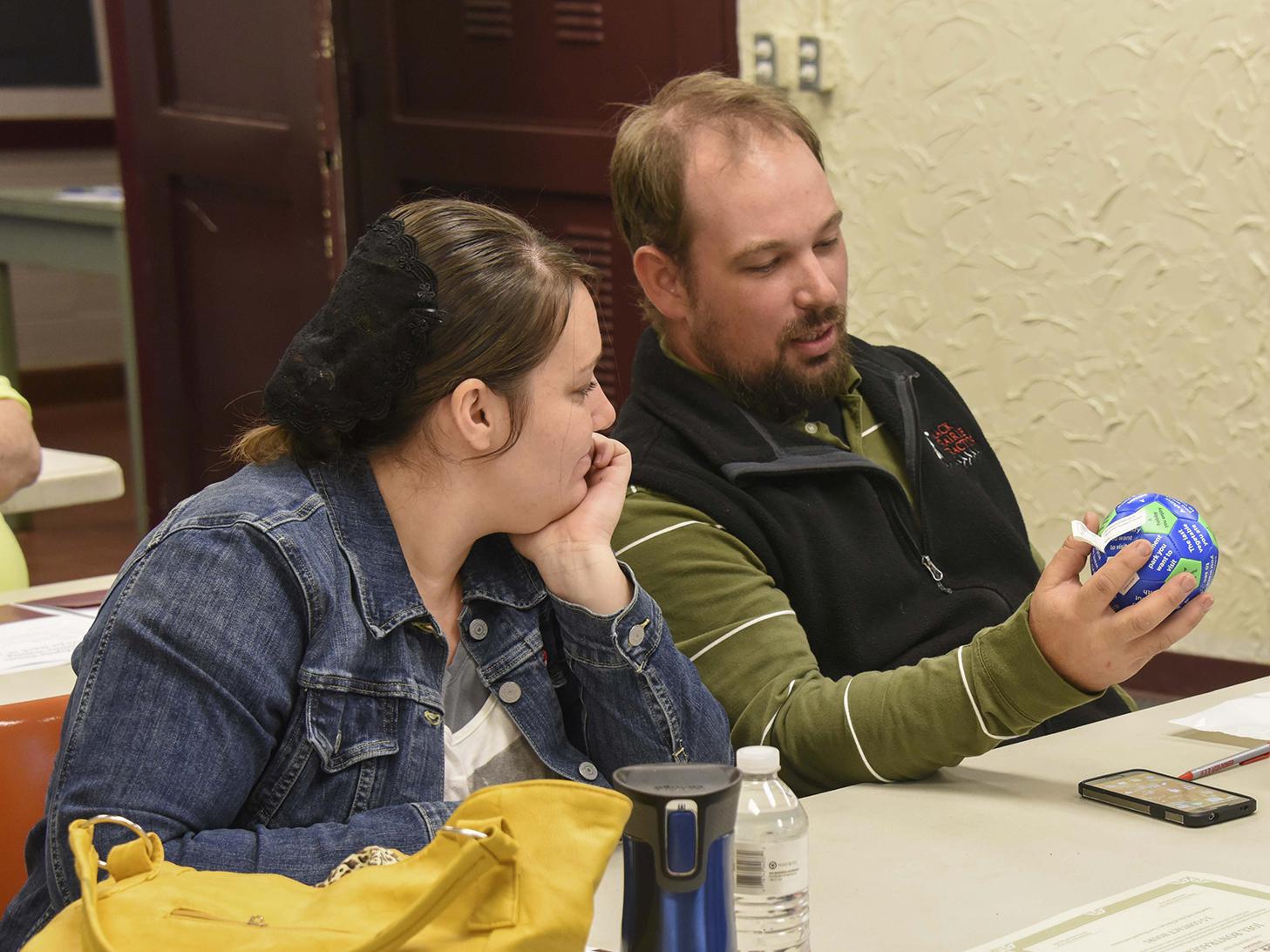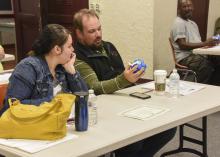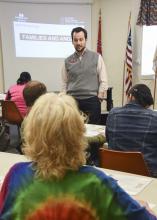Information Possibly Outdated
The information presented on this page was originally released on April 13, 2016. It may not be outdated, but please search our site for more current information. If you plan to quote or reference this information in a publication, please check with the Extension specialist or author before proceeding.
Foster parents sharpen important life skills
STARKVILLE, Miss. -- Family service providers know that parenting is never easy, especially when the children are not your own.
The Mississippi State University Extension Service is teaming up with the Mississippi Department of Human Services Division of Family and Children’s Services to provide workshops on topics such as parent/child communications, helping children cope with change, and coping with stress, depression and anger.
Carolyn Quin, an adoption supervisor with the Division of Family and Children’s Services, said families must complete 27 hours of training to become licensed foster/adoptive parents and then take 10 hours of continuing education every year to maintain their licenses.
“This training provides some of the coping resources families will need as they help children navigate their environments,” Quin said. “Extension is answering an important need for the families and a need for the MDHS Division of Family and Children’s Services because we want parent educators we can trust to provide helpful, engaging lessons.”
The MSU Extension Service is conducting a series of workshops for families in central and northeast Mississippi. Leaders’ goals are to make additional programs available and expand the training initiative statewide.
David Buys, Extension health specialist, and Alisha Hardman, Extension family life specialist, recently led a three-hour workshop on communication skills and how to understand and manage anger. They reviewed scenarios that could trigger anger, discussed how to cope with these situations, and led participants to consider strategies to help them and the children in their care.
“Regarding anger, children often come into foster homes with anger issues because they don’t want to be there,” Buys said. “They may be doing well until something triggers old feelings or habits.”
Buys said feeling angry is a normal response to unwanted changes in life and signals that something needs to be modified.
“The way we express anger can lead others to feel threatened and the need to run away or build walls to protect themselves,” he said. “Anger can hide other emotions like fear, shame and disappointment. Addressing these emotions removes the need for anger.”
Hardman said the ways people communicate when angry can defuse or compound the problem.
“Aggressive styles communicate that my rights count and yours do not. Passive styles are just the opposite,” she said. “Passive-aggressive styles suggest that neither person’s rights matter.”
Hardman said the most effective communication style is assertive and is characterized by expressing feelings in a way that also respects the rights of others.
“My rights count, and so do yours,” she said. “This method looks for a win/win result. Assertive communicators listen without interrupting, clearly state needs and wants, stand up for personal rights and maintain good eye contact.”
Hardman said only 10 percent of our communication is based on words, and the other 90 percent is nonverbal cues such as facial expressions, body language and tone of voice.
“Communication is a complicated process and should be assertive, clear and direct,” she said. “Parents need to model good communication skills for children to see and employ themselves.”
Workshop participants Althea and Joel Bontrager of Columbus said this type of training is important to their roles as foster/adoptive parents and could benefit any parent. They described the lessons as skills that can be used by everyone.
“Foster families experience more stress than most typical families. Lessons in anger management and communication skills are not only good for children, but for adults,” he said. “We don’t need to bring children into environments where we have our own issues.”
Georgia and Roosevelt Dismuke of Columbus said the foster parent experience has taught them about children and about themselves.
“These children can bring so much joy into your life. All they need is love, and we are happy to be a part of their lives,” he said.
The next workshop will address helping children cope with change.
“Most people do not like change, and it can be especially true for children who have been placed in the care of the Department of Human Services,” Buys said.






